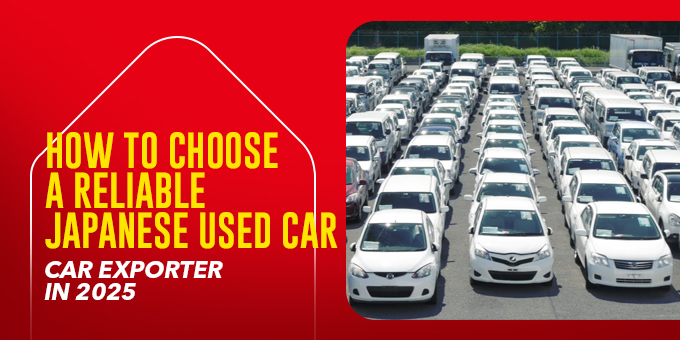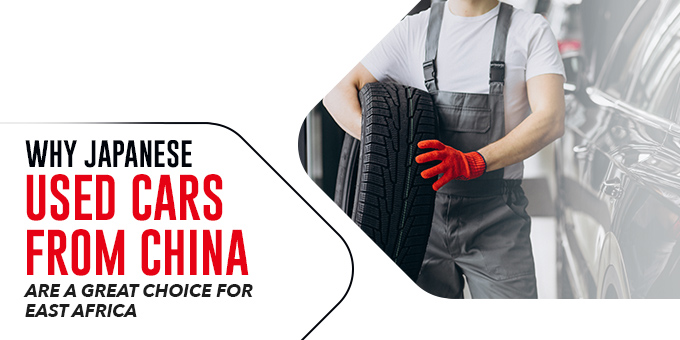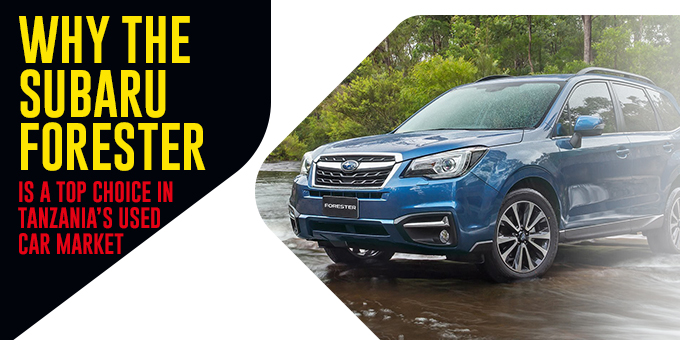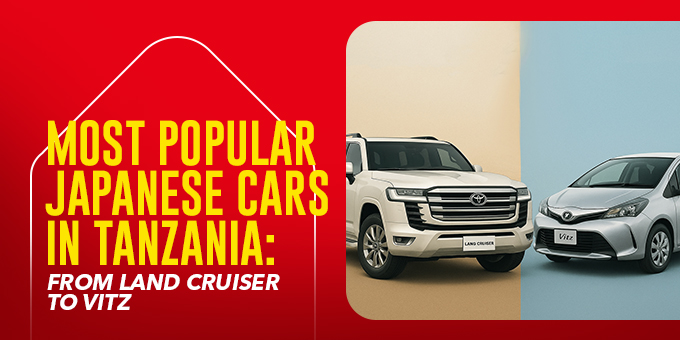Japan remains the world’s leading source of affordable, high-quality used cars. From compact hatchbacks to rugged SUVs, Japanese vehicles are valued for their durability, fuel efficiency, and excellent maintenance records.
Yet, while the cars themselves are dependable, the buying experience depends largely on the exporter you choose. For instance, a reliable exporter can make the process smooth, while a dishonest one can cost you time, money, and peace of mind.
So, the big question is: what things to consider when buying Japanese used cars in 2025? Let’s break it down step by step.
Why Choosing the Right Exporter Matters
Importing a car involves several moving parts: sourcing, documentation, shipping, customs, and delivery. So, an exporter acts as your partner in this process. If they cut corners, you could end up with an accident-damaged car, a missing registration certificate, or delays at the port. On the other hand, a transparent exporter ensures the vehicle matches the description, arrives on time, and clears customs without unnecessary hurdles.
That’s why your priority is not just finding the right car, but finding the right exporter. So, let’s look at the steps below that can help you find the most reliable Japanese used car exporter.
1. Verify Reputation and Trade Association Membership
Firstly, a professional exporter should be licensed in Japan and, preferably, a member of the Japan Used Motor Vehicle Exporters Association (JUMVEA). Membership signals that the exporter follows ethical standards and offers buyer protection mechanisms.
Additionally, always look for:
- Independent reviews on forums and third-party platforms.
- Testimonials from buyers in your country.
- A clear office address and verified contact details.
However, in 2025, online scams have become more sophisticated, so don’t rely only on flashy websites. Look for longevity in the business (at least 5-10 years), as consistency is a strong indicator of credibility.
2. Demand Auction Sheets, Service History, and Photos
Transparency is the hallmark of a good exporter. Every car sourced from an auction comes with an auction sheet. This sheet is a professional evaluation that includes mileage, condition grade, accident history, and even small dents or scratches. Learning how to read this document is crucial, or you can ask your exporter to walk you through it.
However, besides the auction sheets, you must also request:
- Full-service history (if available).
- High-resolution photos from multiple angles.
- A short video showing the car starting and idling.
These details protect you from buying a car that looks good online but hides expensive issues under the hood. So it is better to be upfront with the exporter you are considering for your car import.
3. Get an Independent Inspection before Shipment
Even with auction sheets, it pays to double-check. Independent organizations such as JEVIC or local inspection companies in Japan provide third-party inspections. These checks confirm odometer accuracy, flood damage, structural repairs, and overall mechanical condition.
Moreover, some importing countries even require JEVIC or similar certificates for customs clearance. However, even if it’s optional in your country, consider it an insurance policy against unpleasant surprises.
4. Check Documentation Thoroughly
Documentation is the backbone of any successful import. A reliable exporter will provide:
- Bill of Lading (BL): Proof that the car is on the ship.
- Export Certificate (Deregistration Certificate): Confirms the car has been legally deregistered in Japan.
- Commercial Invoice: States the transaction value.
- Inspection Certificates: Where required.
- English translations: Helpful if local customs need them.
If an exporter downplays the importance of documents or says “we’ll send later,” that’s a red flag. Without the right papers, your car could be stuck at the port indefinitely.
5. Understand Shipping Terms: FOB vs. CIF
Another important factor to consider when buying Japanese used cars is shipping terms. You’ll often see two abbreviations:
- FOB (Free on Board): The exporter delivers the car to the Japanese port, and from there, shipping and insurance are your responsibility.
- CIF (Cost, Insurance, Freight): The exporter handles shipping and insurance until the car arrives at your destination port.
However, CIF is simpler for new buyers, but FOB can sometimes save money if you have trusted shipping partners. Therefore, always ask your exporter for both options and compare costs.
Also, ensure the exporter understands your country’s import regulations. Some markets have age restrictions, left-hand drive rules, or emission standards. All in all, a good exporter will go the extra mile and won’t hesitate to guide you on compliance.
6. Protect Your Payment
Money is often where scams happen. Therefore, always avoid exporters who ask for 100% upfront payments. Instead:
- Use secure payment channels, such as bank transfers to corporate accounts.
- Explore escrow services if available.
- Get a signed purchase agreement outlining refund and dispute resolution policies.
Reputable exporters are transparent about payment milestones, such as a deposit first, and balance after receiving the Bill of Lading. Always make sure you are clear on the payment terms beforehand, and if it doesn’t feel right, then walk away.
7. Consider After-Sales Support
While Japanese used cars are reliable, they are still pre-owned. Ask exporters if they provide:
- Short-term warranties.
- Guidance on sourcing spare parts.
- Technical support or recommendations for mechanics familiar with Japanese models.
These extra services may not always be standard, but exporters that offer them show commitment to long-term customer satisfaction.
8. Work with a Trusted Clearing Agent
Even if the exporter is excellent, your import journey doesn’t end when the ship leaves Japan. A customs clearing agent in your country ensures the paperwork is filed correctly, duties are paid, and your car is released without delays.
Often, exporters can recommend reliable agents, but you can also find local specialists. In either case, ensure your clearing agent is familiar with Japanese import documents.
9. Red Flags to Watch Out For
Not all exporters play fair. Be cautious if you notice:
- No physical office or unverifiable contact details.
- Pressure to pay immediately without documents.
- Refusal to provide auction sheets or inspection reports.
- Unrealistic prices compared to market averages.
- Vague contracts with no dispute resolution clause.
Overall, remember, if a deal seems too good to be true, it usually is.
10. Practical Checklist before Choosing an Exporter
Here’s a quick rundown to keep handy:
- Check for JUMVEA membership and export license.
- Request auction sheets, photos, and videos.
- Arrange for third-party inspection (JEVIC or similar).
- Confirm all export documents in advance.
- Compare FOB vs. CIF quotes.
- Secure payment via trusted channels.
- Ask about warranties or spare parts support.
- Verify your local customs requirements.
- Work with a clearing agent.
- Stay alert to red flags.
Conclusion: Be Strategic and Thorough
In conclusion, when asking what things to consider when buying Japanese used cars, remember that due diligence beats shortcuts. Verify the exporter’s membership and license, insist on auction sheets and independent inspections, secure clear shipping terms and documents, protect payments with contracts or escrow, and plan for customs in your country. By following these steps, you reduce risk and increase the chance that your imported car arrives as advertised, and that you’ll enjoy it for years to come.




